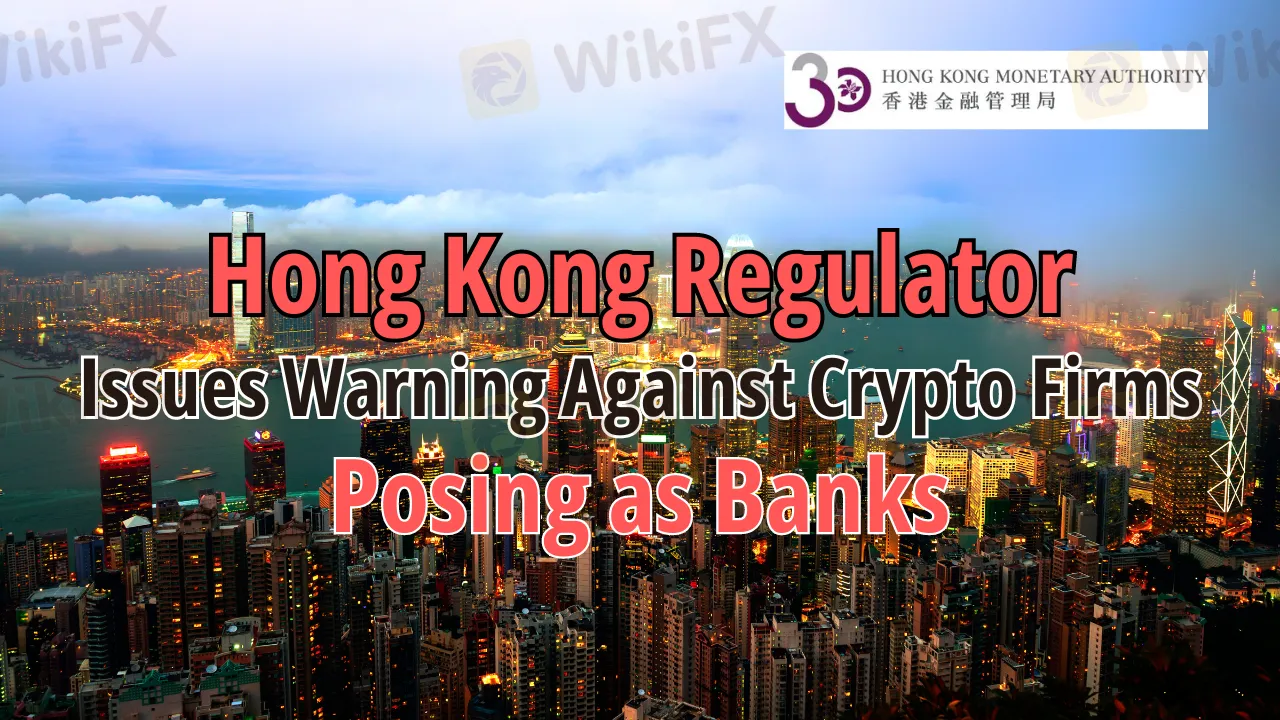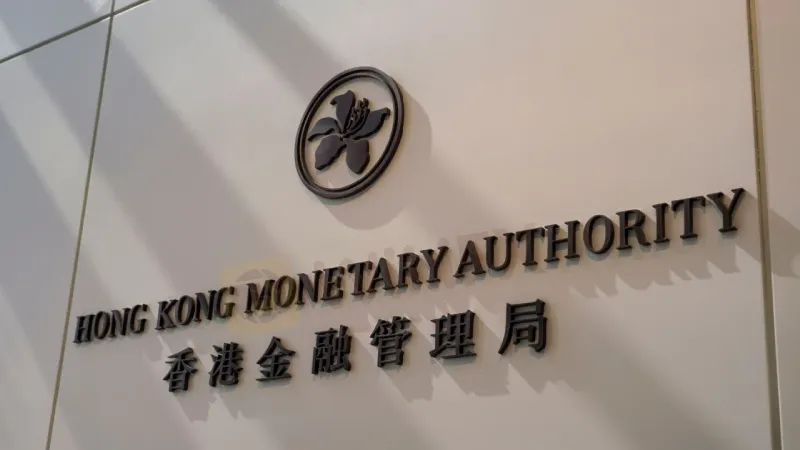简体中文
繁體中文
English
Pусский
日本語
ภาษาไทย
Tiếng Việt
Bahasa Indonesia
Español
हिन्दी
Filippiiniläinen
Français
Deutsch
Português
Türkçe
한국어
العربية
Hong Kong Regulator Issues Warning Against Crypto Firms Posing as Banks
Abstract:HKMA Warns Against Crypto Firms Posing as Banks – Protecting Public from Misleading Descriptions. Learn why false claims violate banking regulations. Stay informed!

The Hong Kong Monetary Authority (HKMA) has expressed alarm over crypto businesses misrepresenting themselves as banks, highlighting that such acts contravene the region's Banking Ordinance. The HKMA is taking this action in order to safeguard the public from any misconceptions and hazards linked with these false descriptions.
False Descriptions Violate Banking Regulations
The HKMA has issued a severe warning to cryptocurrency businesses, asking them to avoid misleading practices such as presenting themselves as banks or advertising their offerings as “deposits.” According to the HKMA, these operations violate Hong Kong's Banking Ordinance, which is meant to regulate financial institutions and protect clients.
The HKMA highlighted its knowledge of crypto firms in a statement made on September 15, using words like “crypto asset banks” and “digital banks” to characterize their activities. Furthermore, the regulator warned crypto businesses from claiming to offer banking services or banking accounts, since such acts may persuade the public to assume they are dealing with reputable financial organizations.

The HKMA Does Not Regulate Cryptocurrency Firms
It should be noted that the HKMA does not supervise or regulate cryptocurrency enterprises. As a consequence, the authority lacks the resources to safeguard the security of monies handled by these businesses. The HKMA emphasized that any monies put with cryptocurrency businesses are not protected by the Hong Kong Deposit Protection Scheme, which generally protects deposits kept in conventional banks.
The HKMA advised people to consult the registry of approved institutions on its official website to check the validity of deposit-taking organizations. This record provides information on financial firms that have earned HKMA licenses to conduct banking or deposit-taking activities in Hong Kong.
In summary, the Hong Kong Monetary Authority is taking steps to prohibit cryptocurrency enterprises from misrepresenting themselves as banks and using deceptive descriptions that may mislead the public. The main purpose is to safeguard customers by making sure they understand the nature of the financial services they are using and the amount of regulatory monitoring in place. Individuals must take vigilance and confirm the legitimacy of deposit-taking organizations, particularly when dealing with cryptocurrency-related services in Hong Kong.

Disclaimer:
The views in this article only represent the author's personal views, and do not constitute investment advice on this platform. This platform does not guarantee the accuracy, completeness and timeliness of the information in the article, and will not be liable for any loss caused by the use of or reliance on the information in the article.
Read more

Medical Officer Trapped in a Crypto Nightmare
A medical officer in Malaysia suffered a significant financial loss after falling prey to a cryptocurrency investment scam that originated on social media. The victim, a 39-year-old woman, was deceived into transferring her savings of RM86,200 following a series of fraudulent claims promising lucrative returns.

Thailand’s War on Illegal Crypto: Five Firms Raided, Millions at Stake
In a significant move against illegal crypto-related activities, Thai authorities have cracked down on five unauthorized cryptocurrency firms operating within the country. The Economic Crime Suppression Division (ECD) conducted coordinated raids across Bangkok, Nakhon Pathom, and Samut Sakhon, leading to the arrest of 11 individuals involved in unlicensed electronic currency transactions. The operation underscores Thailand’s strict regulatory stance on financial crimes related to digital assets.

Why Hasn’t Binance Listed Pi Network (PI) Yet? Key Reasons Explained
Why hasn’t Binance listed Pi Network (PI)? Discover the key reasons, including mainnet restrictions, regulatory concerns, and what needs to happen for a future listing.

Famous Olympic Breakdancer’s Brother Faces Crypto Fraud Charges
Australian Olympic breakdancer Rachel "Raygun" Gunn’s brother, Brendan Gunn, accused of crypto fraud involving $181,000. ASIC investigates.
WikiFX Broker
Latest News
Is TUOTENDA a cryptocurrency scam primarily targeting men over the age of 50?
Canada to Enforce Retaliatory Tariffs if U.S. Duties Persist
Unbelievable! Is the Yen Really Gaining Strength?
FINMA Opens Bankruptcy Proceedings
$13M Pig Butchering Scam: Three Arrested for Money Laundering
FCA Issues Warning Against 14 Unregistered Financial Firms
Crypto Scam Exposed: 3 Arrested for Defrauding Investors
Nifty 50 Index Futures Now Available at Interactive Brokers
Grand Unveiling: The Core Reasons Behind the Yen’s Rise
Ethereum’s Shock Drop: What’s The Real Reason?
Currency Calculator






